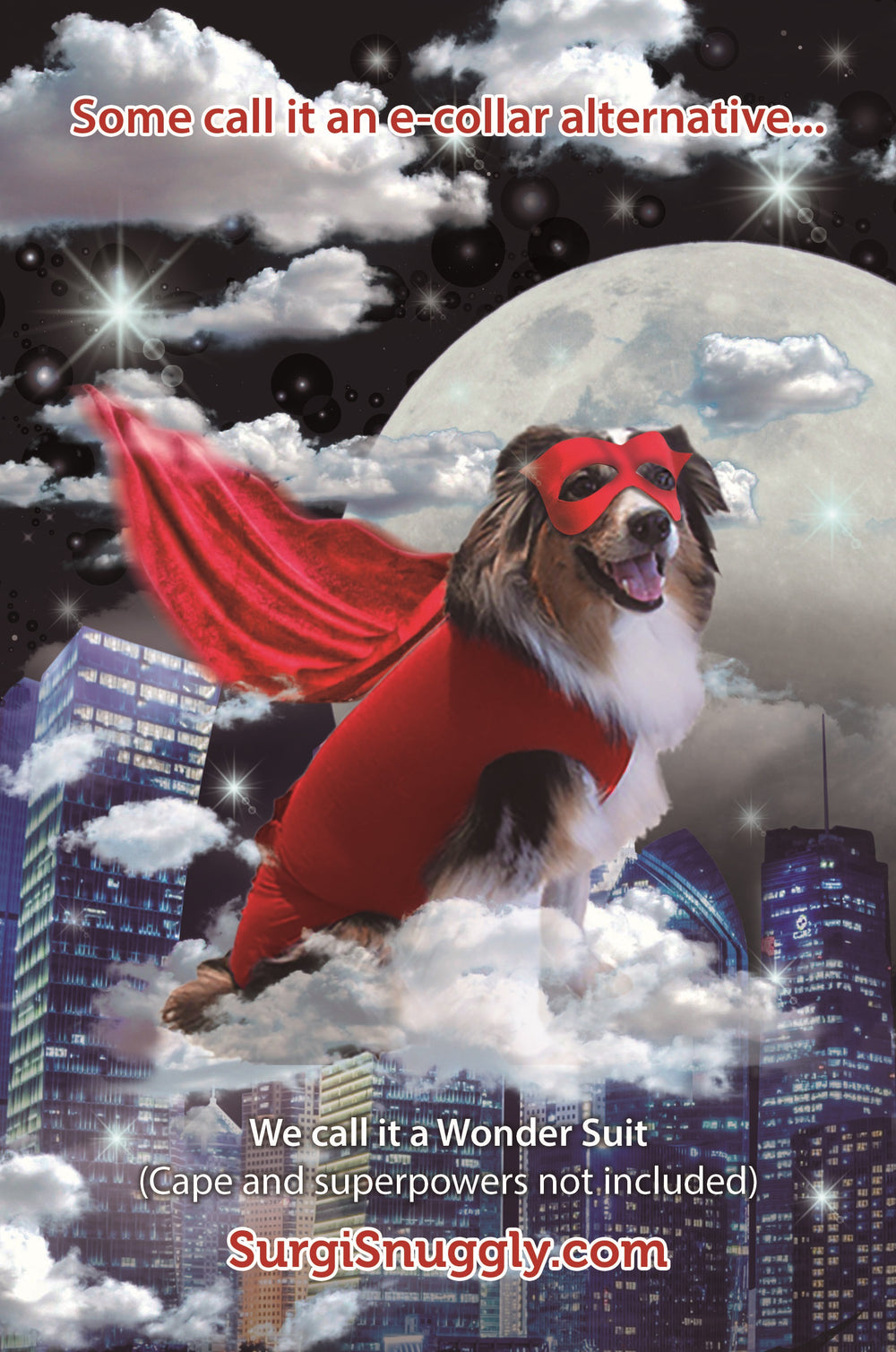Seperation anxiety and the Surgi Snuggly
Seperation Anxiety
1) Separation anxiety in our pets is often discussed as a diagnosis when a pet misbehaves in the absence of their owners. Pet owners need to help the veterinarians distinguish this behavior from a pet misbehaving out of boredom.
2) Although no specific reason for separation anxiety has been proven, a dog’s strong pack mentality and need for social contact may contribute to this disorder. When the social connection is withdrawn, the dog’s anxiety boils over.
3) There is also some correlation that dogs with noise phobias are prone to separation anxiety.
4) Triggers for separation anxiety include anything from a change in the owner’s schedule, a return from a boarding situation to even the death of a companion pet. It is believed that some shelter pets and dogs that have been “re-homed” multiple times are at higher risk.
5) Separation anxiety is almost unknown in cats.
6) Separation anxiety can be characterized by a variety of signs. Symptoms could be mild (loss of appetite, drooling and pacing) or more severe (destruction of household items, house-soiling and extreme vocalization).
7) These behaviors happen only when the owner is gone. They will not manifest when the owner is present with the pet. This defines a general category of behavior issues in dogs called “owner absent” behavior problems.
8) Many pets with separation anxiety will often follow their owners from room to room or desire constant physical contact. Many describe these dogs as “needy” (“Velcro dogs”) as they lack self-confidence in being alone.
9) Since these behaviors can also indicate boredom or the protection instinct for passing animals and people, it is important to speak with your veterinarian or a veterinary behaviorist if you think your dog might have separation anxiety.
10) Although it may be hard to get, a video showing the pet’s behavior as the owner leaves and during the time the owner is gone can be helpful in diagnosing separation anxiety and the severity of the condition.
11) There is no quick fix for actual separation anxiety. Owners must be committed to helping their pet cope with the severe stress in their absence. Treatment for the pet might consist of anti-anxiety medications and some smart and consistent behavioral modification techniques.
12) The use of any medication without a concurrent program of counter-conditioning or behavioral modification is likely doomed to fail. There are no shortcuts to helping dogs with this problem!
13) One real key in management is easing the distress when an owner leaves the home. Owners can leave special treats or even a long-lasting food toy that take time to consume and rewards the pet with treats as he/she chews. One example is a stuffed Kong toy.
14) Above all, owners should never punish their pet when they arrive home to a disaster area. Dogs simply cannot equate the punishment with the behavior that probably happened hours ago. This creates another, perhaps even more serious anxiety, when owners punish the pet upon their return. This could lead to fear upon your return or even fear of the owner!
15) Crating (using kennel confinement for training), although often recommended for most pets, can be counter-productive and even injurious to pets with separation anxiety. If the pet has never been crated before, confinement can actually worsen the situation.
16) However, crating may be necessary to prevent immediate damage or even relinquishment of the pet. Crating can be used in conjunction with urgent work/medications on behavior modification, environmental changes and the owners understanding of this serious and complex issue.
17) If you think your pet exhibits separation anxiety, don’t wait to get help as these problems can get worse with time. Talk to your veterinarian about medications for immediate relief and perhaps a behavior consultation to help in the long term changes that need to happen for these dogs to live normally.
The Surgi Snuggly may be helpful to your pet with their anxiety issues. The calming compression this garment give has worked wonders for many issues including storm anxiety, noise anxiety, motion anxiety and seperation anxiety!
For questions or concerns regarding your pet and the Surgi Snuggly just give us a call and we will assist you in any way possible.
Tonua Williams
CEO, Inventor


